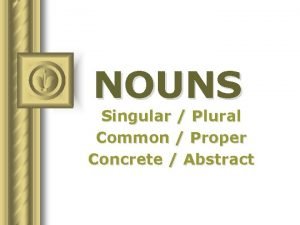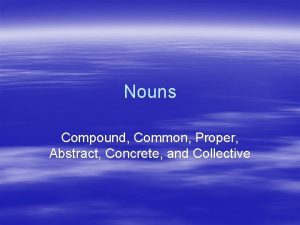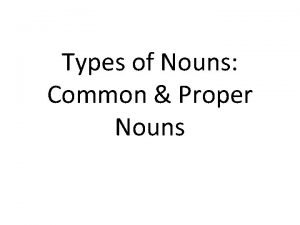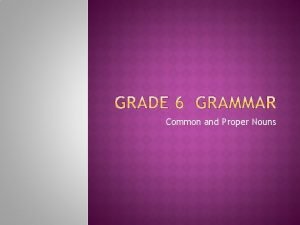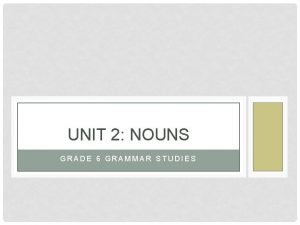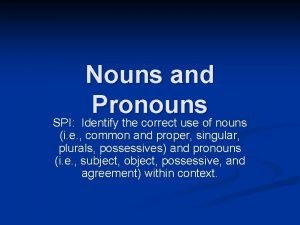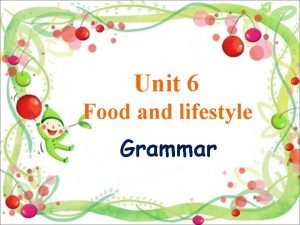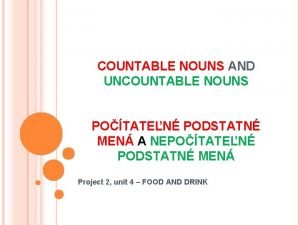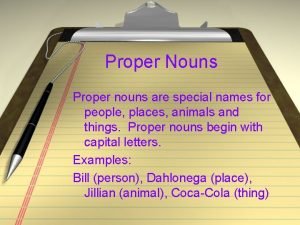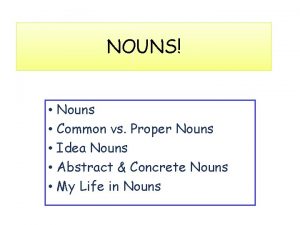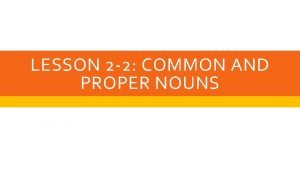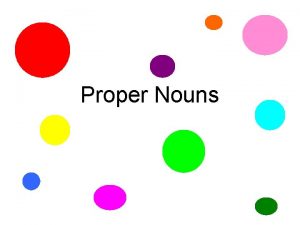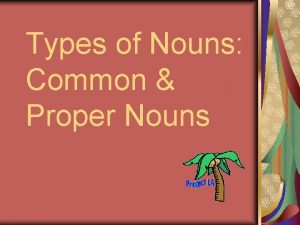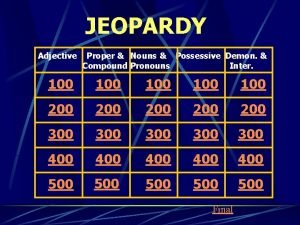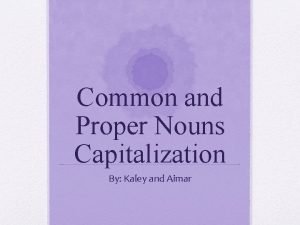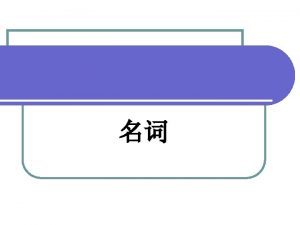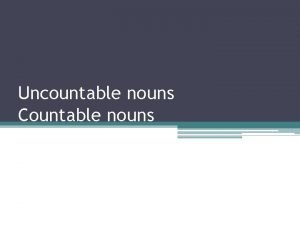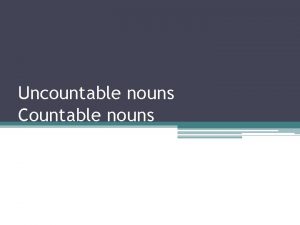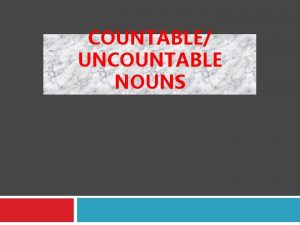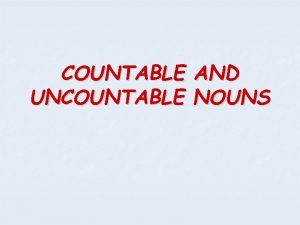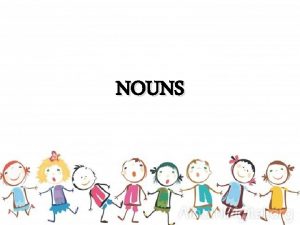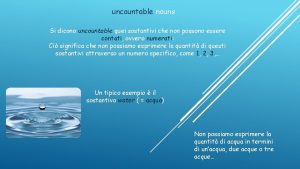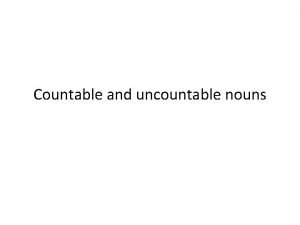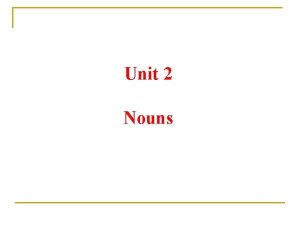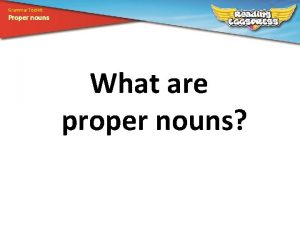Proper Nouns Abstract Nouns Uncountable Nouns Material Nouns

名词 专有名词(Proper Nouns) 抽象名词(Abstract Nouns) 不可数名词 (Uncountable Nouns) 物质名词(Material Nouns) 普通名词 (Common Nouns) 集体名词(Collective Nouns) 个体名词(Individual Nouns) 可数名词 (Countable Nouns)



2. Collective Nouns: 表示由个体组成的集体。 Eg: army; audience; crew; family; team; police; government; public 集体名词有时作单数看待,有时作复数看。一般来说,视为 整体时作单数看,突出它的成员时作复数看。 Eg: His family isn’t large. Cf: His family are all music lovers. 在不少情况下,集体名词后单复数动词都可以用,没什么差别。 Eg: The audience was (were) excited by the show.

有少数集体名词通常用作单数。 Eg: The gang is being hunted by the police. Our company is sending him to work in Berlin. 个别集体名词则多作复数看待。 Eg: The police are looking for him.


4. Abstract Nouns: 表示一些抽象的概念。 Eg: education; love; policy; trust; nature; fashion; relief; silence; truth, etc. 多数情况下,这种名词常用于单数形式,不加任何冠词。 Eg: He’s learning French for fun. I wish you good luck. 有时也可以加冠词。 He works hard for the welfare of the poor. After a brief peace, war broke out again.



名词复数 情况 一般情况 以s, x, ch, sh, 结尾的词 加法 加-s 加-es 例词 Brothers; schools Buses; watches; dishes*1 以辅音+y结尾的词 去y加-ies Ladies; countries; *2 以辅音+o 结尾的词 多数加-es Heroes; tomatoes*3 以f或fe结尾的词 把f/fe改成ves Halves; leaves; *4

Notes: *1: stomachs *2: 以元音+y或以专有名词+y结尾的名词,直接在词尾加-s. Eg: boys; toys; Germanys; Henrys *3: 以元音+o eg: videos; studios 以oo结尾 eg: zoos; bamboos; kangaroos 一些外来词(特别是音乐方面的词)eg: pianos 一些缩写词 eg: kilos; photos; memos 一些专有名词 eg: Eskimos; Filipinos *4: 以f/fe结尾只加-s的词: proofs; gulfs; cliffs; roofs; serfs; beliefs; chiefs 直接在词尾加-s.

不规则复数: 1. man men Eg: woman– women; chairman-chairmen 2. oo ee Eg: foot-feet; tooth-teeth; goose-geese 3. +en 4. ouse Eg: child-children; ox-oxen ice Eg: mouse-mice; louse-lice(虱子) 有些外来词的不规则复数形式: Eg: analysis-analyses; basis-bases; thesis-theses; crisis-crises criterion-criteria; phenomenon-phenomena; medium-media

单复数相同的情况: sheep; deer; means; fish; works; species; Chinese; Japanese 以及由汉语音译表示度量衡、货币等单位的名词。 Eg: yuan, jiao, fen, jin, mu 复合名词的复数形式: 1. 词末+-s eg: film-goers ; forget-me-nots 2. 主体名词变为复数形式:lookers-on; editors-in-chief; sons-in-law 3. 两个组成部分皆变为复数:women doctors; men cooks* 这种形式 的第一个名词必须是man或woman

名词所有格(The Possessive Case of Nouns) some patterns: 1. I’ll take the risk for friendship’s sake. (为了友谊) 2. She was at her wit’s end. (黔驴技穷) 3. Now they could sing at their heart’s content. (尽情地) 4. We should get the children out of harm’s way. (不受损害) 5. We had best keep them at arm’s length. (保持距离) 6. For goodness’ sake, stop arguing. (看在上帝的份上) 7. Jane got the money’s worth out of the coat. (很合算)



5。 谓语用单数的情况。 1)名词所有格之后的名词被省略。(指商店, 场,住宅 等)作主语。Eg: The doctor’s, my uncle’s, the baker’s 2) 中心词是时间、距离、金额、度量、书名等复数名词。Eg: three years; The selected poems of Li Bai; 3) each, every, no 所修饰名词,即使以and 或逗号连接。 Eg: each boy and each girl ; every man and woman 4) 主语有more than one…; many a 5) a kind of; a pair of; a series of…

6) This kind of… 7) The number of… 8) A great deal of…; a large amount of… +un 9) One and a half +可数名词复数 eg: One and a half bananas is left on the table. 10) The departed (死者)意义上指个体 11) the only one of +可数名词复数+定语从 句。从句中的谓语用单数。


Assignment: 1. Try to learn these words by heart: (通常用于复数形式的词) scissors剪刀; pants裤子; contents目录 compasses两脚规; cords灯心絨裤; arms武器 earphones耳机; pyjamas睡衣裤; ashes灰烬 scales天平; overalls 装裤; tropics热带 spectacles眼镜; braces背带; stairs楼梯 nail-clippers指甲刀;slacks便装裤; brains头脑 belongings所有物; savings积蓄; tidings消息 doings行为; findings调查结果 writings作品; And the words in your note paper. 2. Finish Ex. Book Chapter 2. Nouns. (P 7 -P 16)&Chapter 12(P 133 P 136)
- Slides: 20
